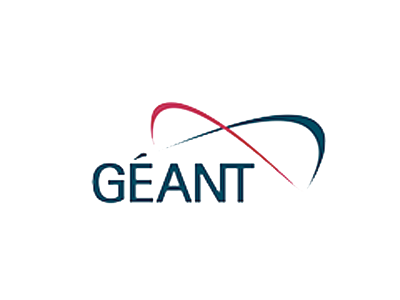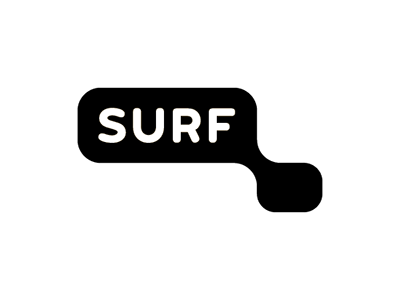
Making cross-border cancer research collaboration safe and secure
Scientists at the Netherlands Cancer Institute (NKI) focus on finding and developing the right treatment for the right people at the right time. To achieve their goals, the NKI’s research group of Hugo Horlings, specialising in computational pathology works closely with groups at other institutions to accelerate that process. However, cross-border collaboration imposes many legal, organisational and technical challenges that can seriously undermine progress toward bringing lifesaving solutions to the clinical world.
Jelle ten Hoeve, former head of Research IT and Information Security / Privacy Officer at NKI, worked hard to balance the requirements of the international collaborating researchers. On the one hand, and especially because patient data is involved, IT solutions must implement stringent technical and organisational measures to comply with privacy regulations and information security standards. On the other hand, collected and analysed data in the scope of the collaboration must be FAIR (findable, accessible, interoperable, reusable) as FAIRification helps leverage work done by others and creates a high-quality data legacy for future projects.
A collaborative effort
For the work on personalised cancer treatment, NKI collaborates with Integraal Kankercentrum Nederland (IKNL) and the University of Helsinki. The project involves sharing clinical, pathology and genomic data.
Ten Hoeve and colleagues sought to establish a shared workspace for storing, using and sharing this data. The 250 GB volume of data was large but not an impossible amount. They needed a secure and shared environment with fool proof security and authentication.
According to Ten Hoeve, three options were available in response to the request to share data. Using public cloud services was one, but it came with a long list of security and privacy issues. The second option, adopting the on-premises infrastructure of one of the collaborating centres, posed challenges such as identity and access management. The third uses the international cloud infrastructure for science and education managed by SURF.
The secure cloud solution
Ten Hoeve presented this case at the annual SURF Research Week conference in May 2022. The SURF Research Week conference connects research, IT and innovation with participants from universities, universities of applied sciences, research institutes, university medical centres and industry.
He elaborated on the options available and the factors that influenced the team’s decision to select SURF Research Cloud (SRC). With authentication through SURF Research Access Management (SRAM), SRC proved to be a turnkey and secure solution for a shared workspace. It implements SRAM authentication for the user accounts of the involved organisations (i.e. the NKI and the University of Helsinki) and thus the ability to grant privileges in the shared environment for the internationally collaborating researchers. From a legal perspective, SRC is a service from SURF, which all parties trust because it is a cooperation of all the research and educational institutions in The Netherlands and complies with ISO 27001 security standards.
The deployment was very intuitive. “We did our magic,” says Ten Hoeve. “We were able to send a five bullet point guide for researchers at NKI and Helsinki, and they were ready to work in a shared environment.”
All the collaborators could log in to this environment, among whom a statistician could install statistics toolboxes and bioinformaticians working in Python to process the data as needed.
The entire multi-centre setup was fast and inherently secure by design.
The advantages of the SURF Research Cloud have far-reaching implications in fostering pan-European collaboration. “There are a lot of reasons we collaborate, and many reasons it is advantageous to promote this,” says Ivar Janmaat, Senior Cloud Infrastructure Specialist and HPC Cloud Team Leader at SURF. “First of all, it’s really fun! Working with our European partners, we learn a lot from one another because many of our colleagues face the same challenges. By working together, we can share resources and challenge one another to develop original ideas and solutions.”
National Research and Education Networks (NREN)-powered cloud solutions like SURF Research Cloud are all about bringing computing power to the data, making cutting-edge collaborative scientific research faster, more cost-effective and more impactful.
Future perspective
International research collaborations like the NKI-Helsinki University case will become standard practice. The SURF Conext federation is part of the global eduGAIN NREN interfederation, that is provided by GÉANT. This allows SURF Research Cloud, that makes use of this trust infrastructure through the eduTEAMS platform, to provide secure research collaboration with other research groups worldwide. As a result, any Dutch researcher can work securely with other researchers in a shared high-performance computing data infrastructure. SURF cumulus provides secure and high bandwidth scale out to private cloud infrastructures from AWS, Google and Microsoft. All services take advantage of cross-sector research and education developments like long-term archiving.
Besides long-term data access, this also contributes to CO2 reduction to ensure that research is carried out most sustainably. Research consortia have specific data curation, and application/platform needs to create knowledge and insights. These research demands must be aligned across new program demands like Horizon Europe’s mission on Cancer. Data needs to be available via European Health Data Spaces. As per Elenor Ostrom’s principle, they must be treated as ‘anti-rival products’ and orchestrated as data commons. According to Peter Walgemoed of LabSpace.coop, a personal membership cooperative that drives the above developments with dynamic, informed consent, curation by design and fair wealth distribution to improve health, this vision is now a reality. This cooperative is further described in the CPI TechREG chronicle “Towards a sustainable health ecosystem, fixed on the deepest professional values”.
For more information please contact our contributor(s):




